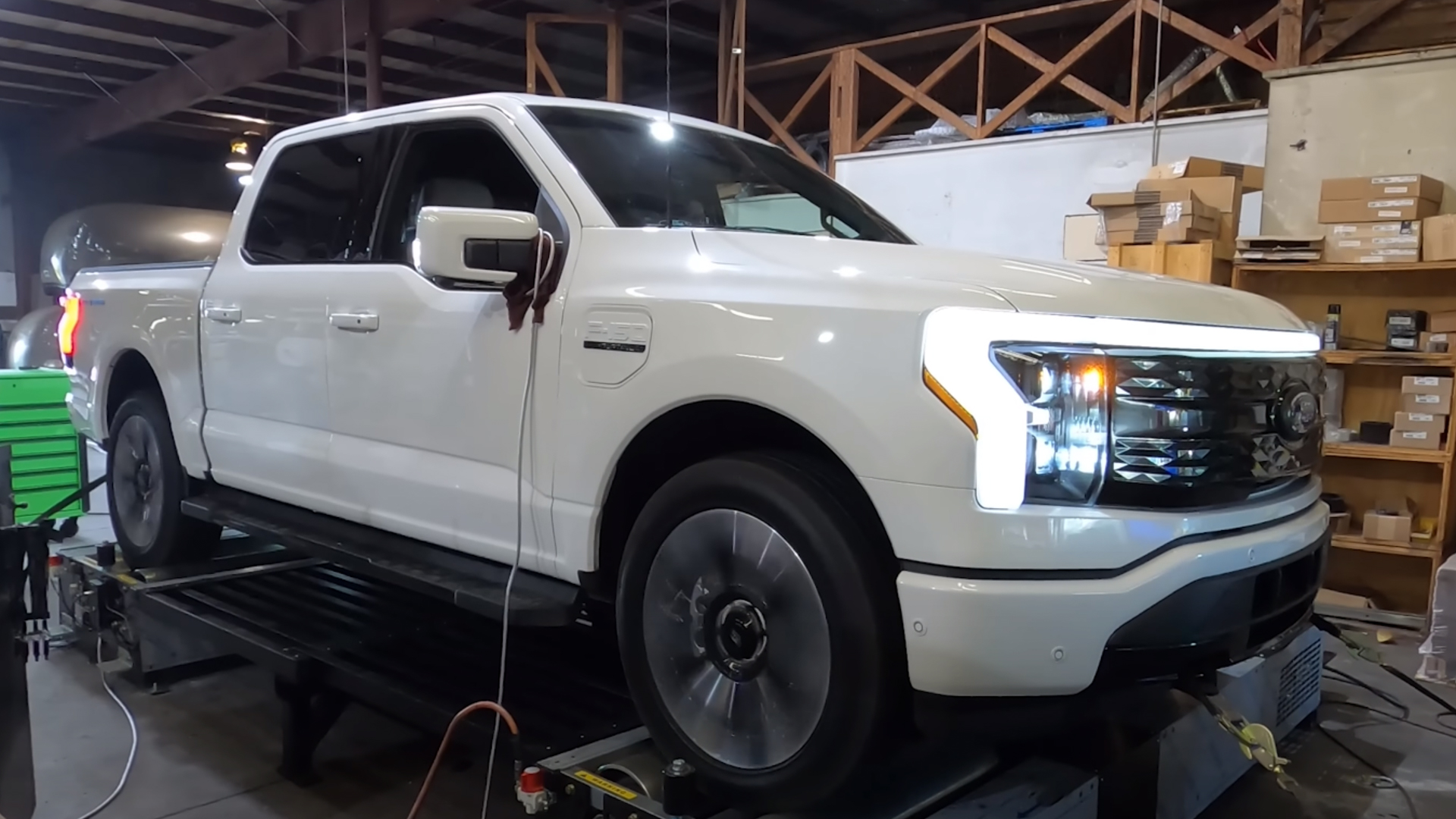

It can be tricky to dyno test an all-wheel-drive electric vehicle, especially one as big as the Ford F-150 Lightning. The Texas Truck Channel on YouTube called every dyno shop within 1,000 miles of Fort Worth, Texas, and there was only one shop that had the equipment to pull it off. And once the crew got it figured out, the F-150 Lightning outperformed its claimed factory specs.
To properly test an all-wheel drive EV, you need a linked all-wheel drive dyno, which isn’t actually all that hard to find. However, finding one big enough to fit the F-150 Lightning’s 145.5-inch wheelbase, is. Dynocoms, a Texas-based dyno company, actually modified their unique driveshaft-linked dyno with an adapter to fit the Lightning’s wheelbase. But that wasn’t the end of the learning curve, though.
Once the F-150 Lightning was up on the dyno, its traction control systems were reportedly freaking out from the test run. That’s not uncommon, especially with EVs. The car’s systems either don’t understand or don’t like all four wheels spinning at full throttle without any load and without the vehicle moving. At first, the crew couldn’t get an accurate reading, as the truck would cut power at different points throughout the test. Thankfully, Dynocoms’ machine has an electro-mechanical brake that can simulate the drag that occurs from real-world driving, which tricked the truck into thinking it was actually on the road.

Once sorted, the F-150 Lightning perfectly performed on the dyno. In fact, it overperformed. Its dyno-rated 560 horsepower is below the 580 horsepower Ford claims for the extended battery Lightning. However, when you consider drivetrain loss—from the motor through the half shafts, to the wheels—560 horsepower is just about right. Its dyno-tested 784 pound-feet of torque, however, is actually greater than the 775 pound-feet claimed rating. For comparison, that’s more torque than the Ram TRX has, with its supercharged 6.2-liter V8 and comparatively puny 650 lb-ft.
A while back, we saw the Rivian R1T struggle with software issues while on an all-wheel drive dyno, too. Its power would surge and it provided inaccurate readings, just like this F-150 Lightning did initially. So it would be interesting to see an R1T get on this dyno and record a proper test. The electric pickup market remains new, and everyone is still learning how to test them.
